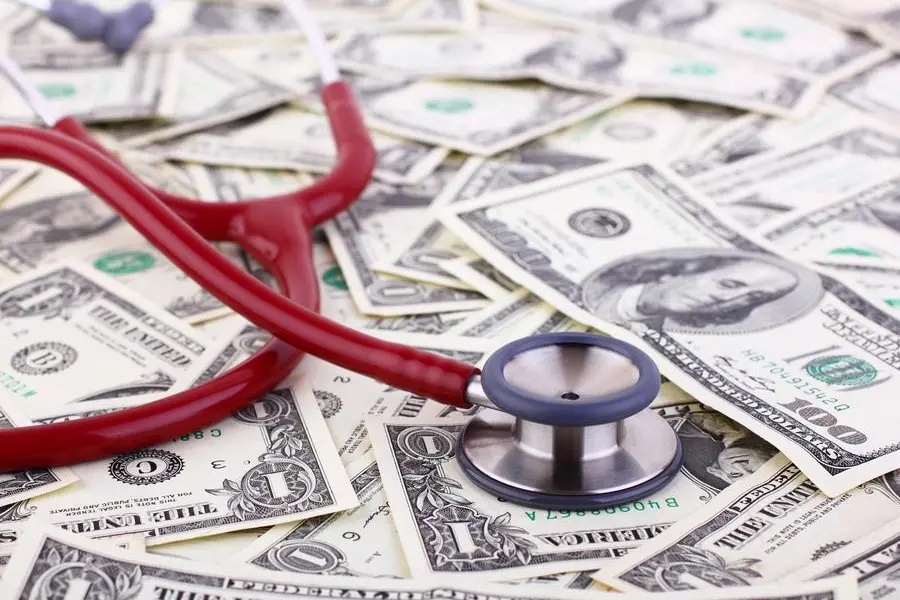PHOTO
The first-ever COP Health Day saw global donors pledge more than $777 million to help control, eliminate, and eradicate neglected tropical diseases (NTDs) from the continent of Africa.
At the 2023 Reaching the Last Mile Forum held during COP28, donors answered the urgent call to step up the fight against NTDs in the face of climate change and work together to improve the lives of the 1.6 billion people worldwide affected by these devastating yet preventable diseases.
The pledging event was hosted by Reaching the Last Mile (RLM), the global health initiative driven by the philanthropy of the UAE President, His Highness Sheikh Mohamed Bin Zayed Al Nahyan, in partnership with the Bill and Melinda Gates Foundation. RLM joined the Gates Foundation and global partners to announce a milestone expansion of the Reaching the Last Mile Fund (RLMF) from $100m to $500m.
The expansion will increase the reach of the fund from seven countries to 39 across Africa and Yemen, to eliminate two NTDs, lymphatic filariasis and onchocerciasis (river blindness), from the continent of Africa. The funding builds on the success of the RLMF, which launched in 2017 as a 10-year, multi-donor fund, to establish a model for eliminating the two diseases in sub-Saharan Africa.
The collective pledge of $777.2 million is a landmark push to accelerate progress toward achieving the goals outlined in the World Health Organisation’s 2030 roadmap on NTDs.
‘Dignified future for all’
Sheikh Abdullah bin Zayed Al Nahyan, Minister of Foreign Affairs, UAE, was joined by world leaders including Samia Suluhu Hassan, President of Tanzania; and Dr Austin Demby, Minister of Health and Sanitation, Sierra Leone, in a demonstration of endemic country leadership against NTDs.
Bill Gates, co-chair of the Bill and Melinda Gates Foundation, and Sheikh Theyab bin Mohamed Al Nahyan, Chairman of the Office of Development Affairs at the UAE’s Presidential Court, which oversees Reaching the Last Mile, were in attendance, alongside ministers and global health leaders.
Sheikh Abdullah expressed his gratitude to those who seized the opportunity to renew their commitment to end NTDs.
“Today’s demonstration of global solidarity reflects a shared determination to deliver a better and more dignified future for all. Incredible progress over the last two decades has proved that a world free of NTDs is an achievable goal.”
Sheikh Theyab said the RLMF represents a “historic opportunity” to free communities across Africa from the threat of two NTDs.
“We reaffirm our pledge to eliminate these diseases of poverty and save and improve lives worldwide. Climate change is already affecting the patterns of infectious diseases and risking the tremendous gains countries have made to date.”
Bill Gates underlined that climate change is inextricably linked to poverty and diseases affecting millions. “That is why funding for lifesaving healthcare is critical and why we’re joining global partners to build on the tremendous progress of the Reaching the Last Mile Fund to date and accelerate the elimination of LF and river blindness across Africa and beyond.”
‘Beacon of hope’
Reaching the Last Mile’s new $100m commitment, matching the Gates Foundation’s $100m commitment represents a five-fold increase over the contributions made, respectively, to the fund at its launch. Further contributions from country and donor partners including Sierra Leone, the Carter Center, Sightsavers, the Children’s Investment Foundation Fund (CIFF), The Helmsley Charitable Trust, the END Fund, and Abu Dhabi National Insurance Company will see RLMF significantly broaden its scope, to ensure over 350 million people no longer require treatment for these diseases by 2030.
Over five years the RLMF has provided more than 100 million treatments, trained 1.3 million health workers, and established nine laboratories to support NTD surveillance and testing. The fund played a critical role in interrupting the transmission of river blindness in Niger and has supported Senegal in nearing this milestone. To date, 50 countries have eliminated at least one NTD and 600 million people no longer require treatment.
Dr Tedros Adhanom Ghebreyesus, Director General of the WHO, added: “The collaborative efforts of countries and global donors exemplify an unwavering dedication to improving the lives of the 1.6 billion people affected by these diseases. This partnership, especially in the face of challenges posed by climate change, represents a beacon of hope and a testament to what can be achieved through united global action.”
Copyright © 2022 Khaleej Times. All Rights Reserved. Provided by SyndiGate Media Inc. (Syndigate.info).





















